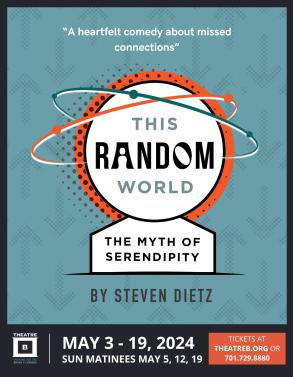News | October 5th, 2016

By C.S. Hagen
cshagen@gmail.com
Oil, not the state’s children or the elderly, is North Dakota’s primary concern, according to North Dakota legislature and mental health advocates.
Anger against recent budget cuts, despite fierce resistance during the state’s special session of the legislature in August, prompted The Consensus Council, Inc. to arrange a meeting with therapy workers, advocates, mental health professionals, state politicians, and parents. They’re preparing to fight, once again, sweeping budget cuts passed by North Dakota’s legislature, which have taken millions of dollars in government support from the state’s most vulnerable.
“In the last week what the majority party shoved through circumventing the normal processes was a 23 percent oil extraction tax cut, 80 percent of which goes out of state to businesses who are not connected to North Dakota in any way other than a profit way,” Representative Mary Schneider, D-N.D., said.
“It’s millions and millions of dollars that we gave away that we could have been using to help our own people,” Schneider said. As of August, North Dakota has lost USD 13 million per month and an additional USD 51 million in federal matching monies because of the oil extraction tax cut, which could have been directed toward health issues, Schneider said. The oil extraction tax incentive is in addition to the 4.05 percent budget cut allotment passed in February 2016, after projected general fund revenues fell USD 1.074 billion short of forecasts, affecting children and nursing homes across the state.
“And oil companies were not even pushing for this.”
North Dakota Department of Human Services’ budget, the state’s largest agency, had its budget reduced by USD 54 million in general funds, and a matching USD 61 million in federal funds, Executive Director Maggie Anderson said.
“No autism services have been affected through the second round of budget cuts,” Jeff Zent, the communications director and policy advisor at the State of North Dakota Governor’s Office, said. “And I believe that we’re getting a million dollars a month more now because of these legislative changes. They’re paying more today than before.”
The oil extraction tax break was part of a plan under House Bill 1476 to find savings for the state. “They aren’t reductions to existing services, they are eliminations to appropriated expansions,” Zent said. “The governor has always considered this as short term adjustments meant to get us through the current budget cycle. During the next legislative session and two-year budget, there are going to be challenges, no doubt about it.”
In what Schneider described as a “sneak attack,” Governor Jack Dalrymple, R-N.D., and the dominating Republican Party circumvented the normal processes and balanced the oil-company tax incentives “on the backs of our children,” without changing “one word or one comma with the bill they walked into the session with,” Schneider said.
North Dakota’s children – the autistic, the mentally ill, and the mentally challenged – their parents, their doctors, and therapists, are being hit – hard – by budget cuts and the tax-cut incentive, Executive Director of Mental Health American and the North Dakota Federation of Families for Children’s Mental Health Carlotta McCleary said.
“We were in a crisis and now it is worse than a crime,” McCleary said. “Typical situation is that for those with chronic illnesses are now not going to hospitals but to jails, in handcuffs.”
A woman in northwestern North Dakota committed suicide because she could no longer pay the fees to help her troubled child. Teenagers with mental health issues are being dragged to jail in handcuffs instead of being treated properly at hospitals. Hospitals are refusing to take troubled children. Insurance companies, as North Dakota is one of five states in the nation that doesn’t require insurance companies to cover those with special needs, are refusing coverage. Waiting lines for mental assistance have grown longer, making acceptance nearly impossible. Skilled therapists are living paycheck to paycheck, therapist Stephen Olson for Pediatric Therapy Partners said, and some are beginning to look for work elsewhere.
The North Dakota Department of Human Services was excluded from the second round of allotments assigned during August’s special session of the legislature, Anderson said. Although the original 4.05 percent budget cut is in place, an additional 2.5 percent cut was not enforced, she said.
The North Dakota Department of Human Services is funded primarily through the federal government, and although their budget shrank, no one will be losing their jobs, Anderson said. “We’re listening to what people are saying, but funding and appropriation decisions are with the legislature and what they’re able to do.”
Automatic oil triggers, set by law for decades, would have further reduced funding to human services and other state agencies if Dalrymple had not called the special session, Ryan Rauschenberger, the state tax commissioner said. According to law, when oil prices drop below USD 55 a barrel, the oil extraction tax would have dropped to one percent.
“Had the law not passed we would have collected USD 300 million less,” Rauschenberger said. “Only for the last 12 years did we have the top rate. What we saw is that the triggers were going to come on again, and we said we’ve got to do something.”
Most oil extraction taxes are dedicated solely to constitutional funds, such as the general funds for human services, for school, for legacy funds, which are voted in by the people of North Dakota, Rauschenberger said. State legislature meets again in January, and will be reviewing - once again - the impacts of recent budget cuts.
Mental health services in North Dakota were not perfect before, but with one in five families in North Dakota who have children with special needs – enough to fill the Fargodome – the situation is now dire, Director of Family Voices of North Dakota Donene Feist said.
“There’s nobody this will not affect,” Feist said.
“The long term impact on our state will be tremendous,” Tricia Page, a parent said. Her oldest son has autism, and she isn’t sure how her family will continue. “This will affect families and eventually the taxpayers.” Children in need of special services have the capability to learn to read, to speak, and to practice social behavior, basic functions of life taken for granted by most, and these services, difficult to obtain before budget cuts, now border on the impossible.
Nicole Watkins, a mother of a child with mental health issues, broke down in tears during the September 28 meeting while describing how her son took a golf club to her house, and how hospital personnel actively tried to push her to press charges and send her son to jail, instead of being admitted.
“There was nowhere for him,” Watkins said. “And that can’t happen, not in our state.”
The lack of services for children with special needs will one day increase the risk for long term hospitalization, and, assumedly without insurance, jail times for soon-to-be unavoidable crimes. Lack of funds now will force skilled therapists and doctors to leave the state, all of which will burden the taxpayer in the long term, McCleary said. In Minot, a hospital lost its permission for a 10-bed increase. Mobile Crisis lost USD 250,000 in support, recovery centers are losing slots for patients, and some are contemplating closing down.
State Senator Tim Mathern, D-N.D., and Schneider attended the meeting sponsored by the North Dakota Autism Spectrum Disorders Advocacy Coalition and held at St. Genevieve’s in Fargo. The Consensus Council, Inc., a non-profit, private disagreement facilitator, organized the meeting. As an advocate herself, Executive Director Rose Stoller said funding could come from any number of the state’s 200 special interest accounts – or perhaps even funds from the governor’s new USD 5 million mansion – to help ease with the situation.
“They really need to choose wisely,” Stoller said. “There should be more work done in earnest to meet these very basic needs. People in North Dakota really care about these issues.”
“I wouldn’t be too sure that everyone has the best interests in mind for protecting vulnerable citizens,” Schneider said. “We had a lot of resources, and we still do have resources, rather than cutting child care, behavioral health autism, and other people projects. The reason we’re not doing it is because of an imbalance of power and the wrong values controlling the government of this state.”
Commodity prices are lower than previous years, oil prices also are lower, but Schneider believes the move to be an intentional shrinking of government agenda.
“It makes me sad, and it makes me angry,” Schneider said.
April 18th 2024
April 18th 2024
April 18th 2024
March 21st 2024
February 15th 2024


__293px-wide.jpg)


